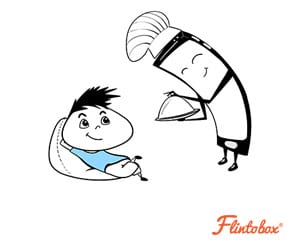What is a food allergy and how can you be prepared if a child in your preschool has a sudden allergic reaction? This article takes you through the important details of food allergy among children.
A child who sneezes or coughs or develops hives and get cramps or stomach ache immediately after eating some food items may have a food allergy.
An allergy may be caused by external factors like pollen too but in this article we will focus only on food allergies and children.
Any child may develop allergies but they are more common in children who have parents or grandparents with a history of such reactions. When the immune system of the body reacts to any food item, then it is known as a food allergy.
How to deal with a child who has a food allergy?
As a first step you will have to speak to the parents of each child in your class and understand if they have any family medical history. If they do have a history of food allergy then please make a note of this in the child’s file.
Also, ask the parent if the child has any known allergy and has sought medical attention for the same. This information needs to go in the Allergy list that is displayed in the classroom.
It is important that the information on allergy is provided with a letter from the doctor. Request the parents to provide you the test results or a doctor’s note if and when they inform you that their child has a food allergy.
In case, an allergic reaction occurs during school hours, ask the parent to furnish details on how to respond before medical attention is sought. This will help you understand how to provide the necessary first-aid to the child if he or she has an allergic reaction.
What are some common allergic symptoms to look out for in children?
Here are some very common allergic symptoms in children:
- Sneezing, coughing, a runny nose or/ and itchy eyes.
- Skin rashes and heat hives.
- Difficulty in breathing- like asthma.
- Nausea or a stomach upset.
What are some common food items that can cause a food allergy?
Most common food allergies are caused by peanuts, milk, milk products and eggs. Seafood especially fish, shell fish and prawn could also lead to allergies. A sudden reaction is also called a trigger. A trigger may also be caused due to some kinds of nuts, soy and wheat too.
Pineapples and some other such fruits
Fruits are an important part of a child’s diet but there are some fruits like peach, apple and pineapple that could prove to be allergic to some children. An itchy throat is a very common symptom after eating a pineapple and having an allergic reaction.
How to find out if a child has a food allergy?
Millions of children across the world have some of form of food allergy. It is very difficult to know what kind of food allergy a child has. Most parents get an allergy test done for the children when they are really young. You could suggest this to all the parents in your preschool as well. A sudden change in a child’s diet must be avoided without consulting a pediatric dietitian.
What is your responsibility as a pre-school teacher/founder?
As a teacher and a caretaker you must recognize and be aware of children with food allergies. Even if food is packed from home, it is good to check if the meal contains any items that the child is allergic to. You can refer the allergy list in your classroom.
You must be aware of the possibility of a sudden reaction that may occur and the symptoms to watch for in children. In some severe cases a reaction could also lead to sudden drop in blood pressure, shortness of breath and can send the body into a shock.
When a child develops allergic reaction, immediately call the doctor you are associated with to come and handle the situation . In case of severe reactions, the child will need emergency medical care and a dose of adrenaline to stop the allergic reaction. Do not medicate the child without checking with a medical official and keep the parent informed and take their consent.
What is Anaphylaxis?
Anaphylaxis is a serious, life-threatening allergic reaction. It always requires urgent medical attention. Some such symptoms are chest tightness, a severe asthma attack, swelling of the tongue especially leading to a restricted airway, a sudden drop in blood pressure.
Some children may even complain of dizziness and confusion- this could lead to a coma, so they need urgent medical condition in such a case.
What are mild allergies? Do they need emergency medical attention?
Some food allergies are mild and do not require immediate attention. But remember, they are mild to moderate and typically affect the skin, the respiratory system and the gut. They are not severe and can be treated easily.
Here are some symptoms of an immediate food allergy. The symptoms are a flushed and itchy, red face with itchiness around the mouth, tongue. This itchiness can also spread across the entire body.
Sometimes this can be accompanied by mild swelling particularly of the lips, eyes and face.
Children can develop allergies and the parent may not be aware of it. And, hence if you observe any of these symptoms, report to the parent immediately.
You can suggest that the parent takes them for an allergy test. Parent could also try removing the food item from the child’s diet and make an observation.
Delayed food allergies
A food allergy always involves the immune system. A reaction to any food items need not always be immediate. Delayed food allergies can cause confusion and go undetected.
Keep a constant lookout for such food allergies and check if the children are experiencing any of the above mentioned symptoms. Delayed and untreated allergies could lead to chronic symptoms like reflux, poor growth, diarrhea, constipation and asthma.
Feeding a preschooler
As a preschool instructor you will need to understand and recognize allergic reactions and deal with them in an appropriate manner. It is important to have the allergy list put up on your teacher’s wall. And, to constantly update the allergy list to capture new information,if any.
And, while feeding children to check if their lunch box has any items that the child is allergic to. In case, the child shows any symptoms of allergic reaction then medical attention immediately and report to the parent.
Constant medical tests and check-ups
All allergies are not permanent, children with food allergies could continue to see their doctors as they grow up. Repeating allergy tests can help predict if the allergy has been outgrown or if the child has built resistance towards some particular allergy.
If a child in your classroom has a food allergy and the parent is confused on how this child is supposed to be taken care of, then you could suggest that the parent seeks medical help.





